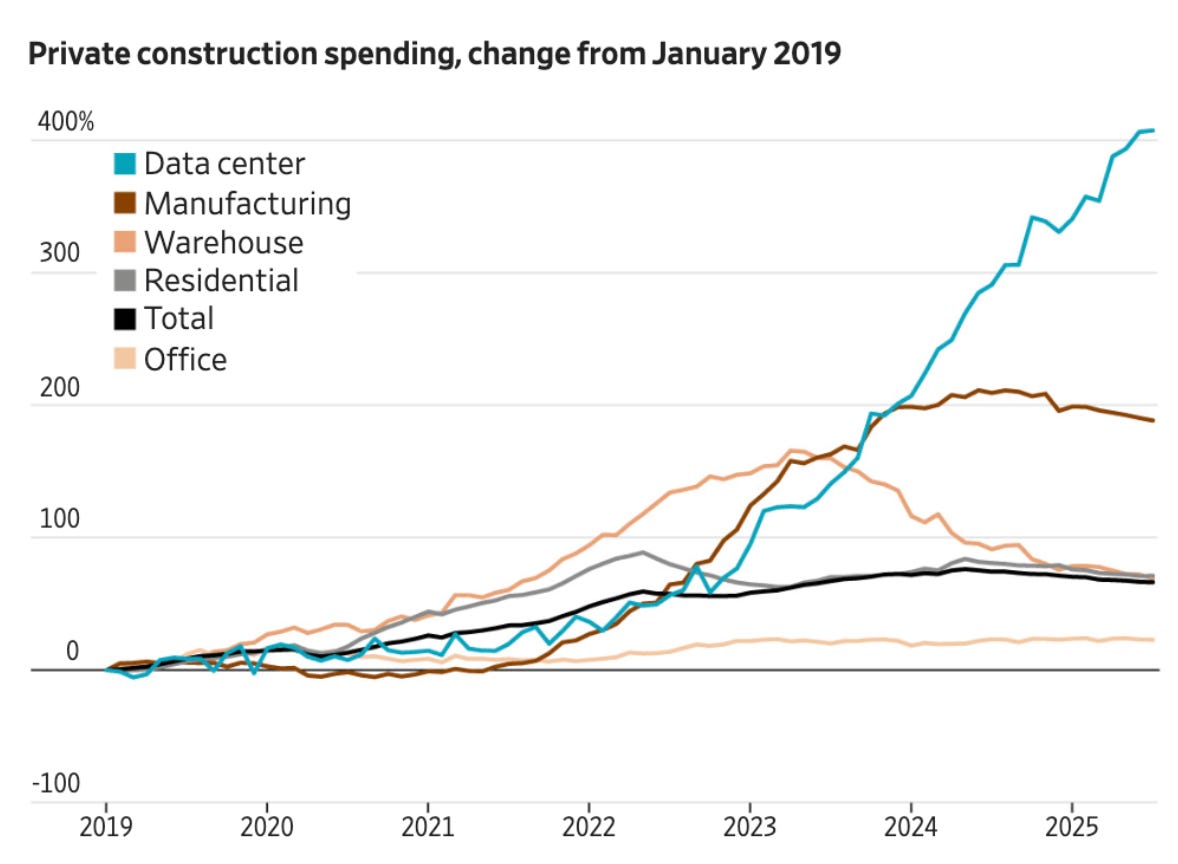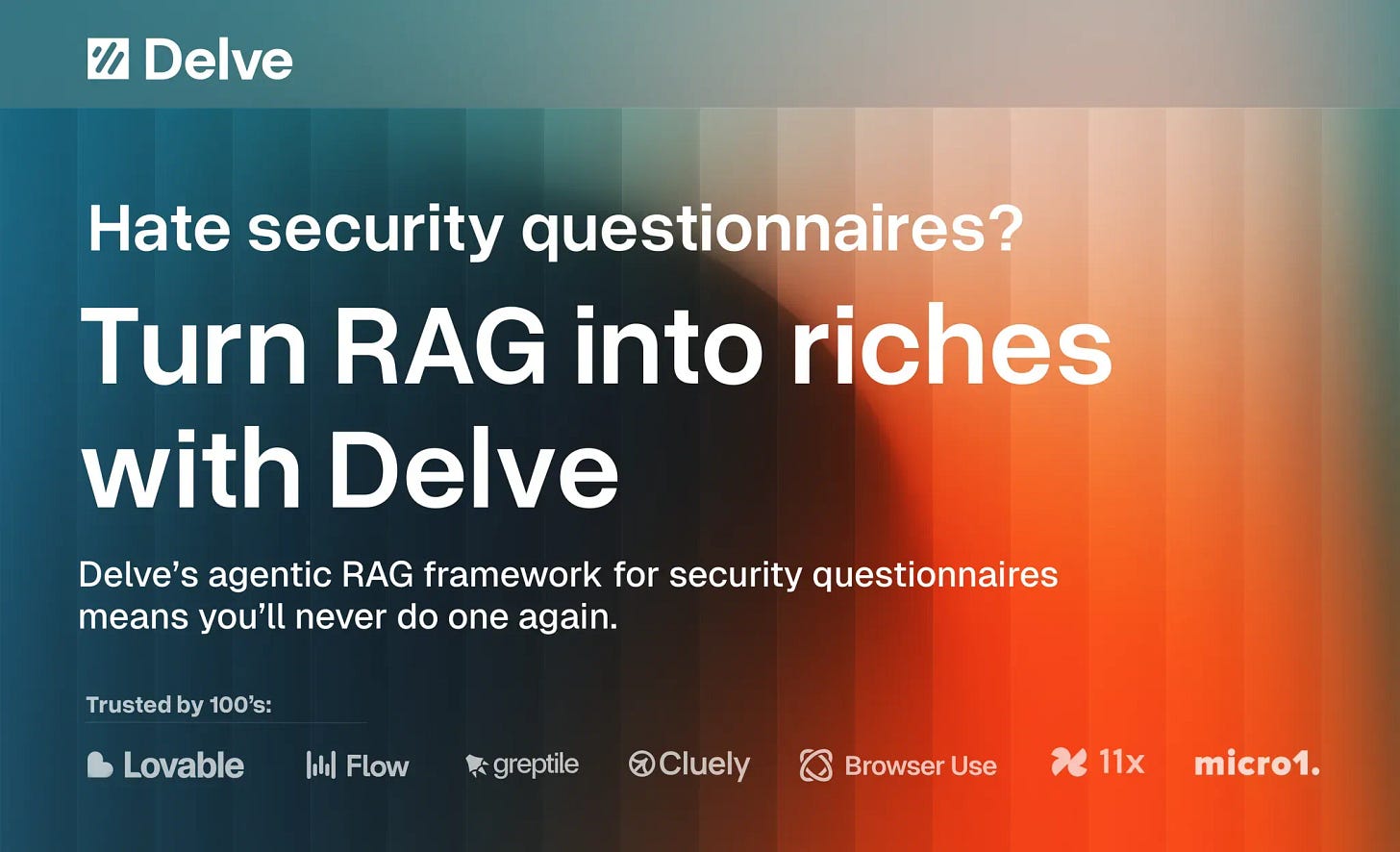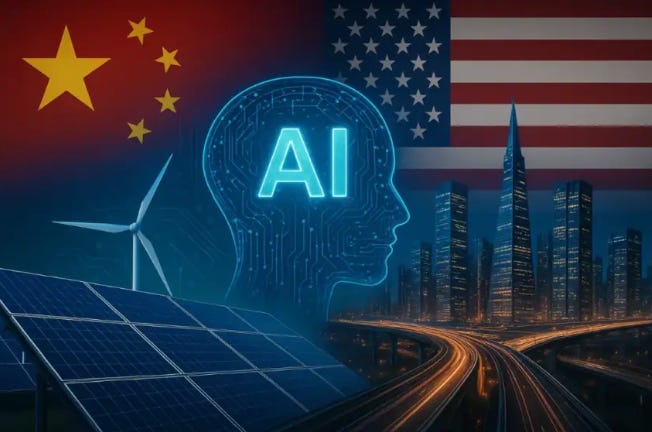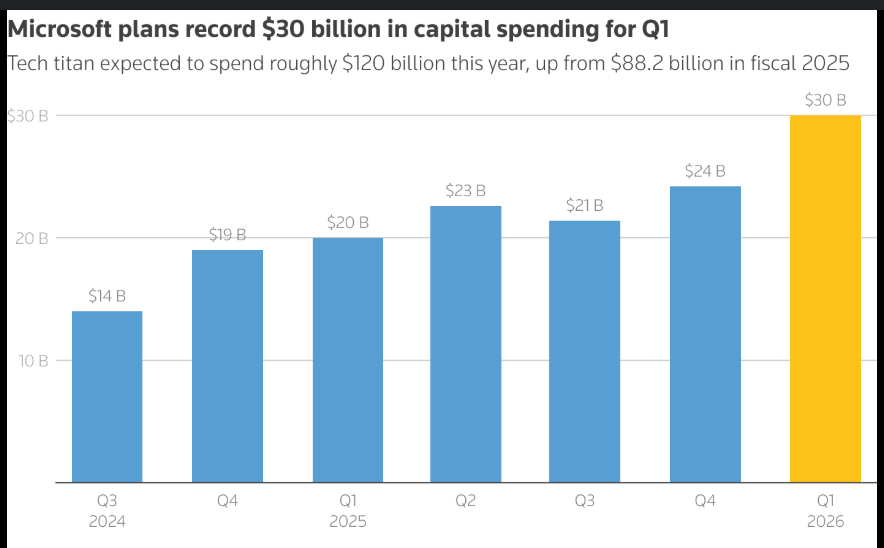China’s Cheap Power Push To Tilt the AI Race
Plus: China’s Cheap Power Push To Tilt the AI Race
Brought to you by Delve:
The AI race is quickly becoming a battle for cloud power. Tech giants now sit on more GPUs than the electric grid can support, turning compute and energy into the new oil of the digital era. China is countering with massive energy subsidies that could tilt the balance in its favor, while Microsoft and others play chess-like moves to lock up cloud access and outsource power capacity.
For the rest of us, the best strategy is to stay ahead of the curve, keep learning, and experimenting. So today, we’re sharing 3 powerful AI-augmented tools to explore and a set of free AI courses to level up your skills. Let’s dive in and stay curious.
China’s Cheap Power Push To Tilt the AI Race
AI Tools - AI-augmented Workflows Tools
Microsoft’s $33 B Compute Gambit Turns Cloud Partners into AI War Machines
AI Guides - Three New Free AI Courses You Can’t Miss.
Subscribe today and get 50% off for life, free access to our 1,500+ AI tools database, and a complimentary 30-minute personalized consulting session to help you supercharge your AI strategy.
📰 AI News and Trends
AI Giants Face Power Crunch as OpenAI and Microsoft Admit Energy Shortages Now Limit Growth
Apple will rely on Google Gemini models for the new Siri experience, moving away from competing with existing AI chatbots.
Microsoft signed one multibillion-dollar data center deal with Australia’s IREN, and another with Lambda.
Anthropic Projects $70 Billion in Revenue, $17 Billion in Cash Flow in 2028
Other Tech News
Tesla’s European Sales Collapse as Chinese EV Rivals Erode Market Share, but
Tesla has reportedly signed a deal with South Korea’s Samsung SDI to purchase over $2.1 billion in energy storage system (ESS) batteries across three years.
Dating Apps are still hot, Facebook Dating has reached 21M+ daily users since its 2019 launch
Kimberly-Clark makes $49B bet that Tylenol risk is overblown.
Starbucks to sell 60% of China business to Boyu.
Turn RAG into riches with Delve’s AI for security questionnaires
Hate those endless security questionnaires? We do too. So we hired the sharpest AI brains from Stanford, MIT, and beyond—and made them do your grunt work. Delve uses state-of-the-art agentic RAG, not your average “retrieve + answer” hack.
Our agents think ahead: pull evidence, resolve conflicts, reason across your policy graph, interrogate your infrastructure, and draft bullet-proof responses. We’ve helped Lovable, Bland, Micro1, and a ton of the fastest-growing AI companies navigate and close review with almost every F50 - and saved dozens of hours with our AI-native compliance platform.
Book a demo with Delve and get $1,000 off SOC 2, HIPAA, GDPR, and more - and automate security questionnaires away forever.
China’s Cheap Power Push To Tilt the AI Race
China is cutting electricity costs by up to 50% for major data centers using domestic AI chips from Huawei and Cambricon, according to the Financial Times. Local governments in regions like Guizhou, Gansu, and Inner Mongolia are offering massive energy subsidies to tech giants, including ByteDance, Alibaba, and Tencent, a move to offset U.S. chip bans and boost homegrown computing power.
With industrial electricity dropping to ~$0.056/kWh (half U.S. rates), China could rapidly expand its AI infrastructure, training more models and deploying AI at scale. US AI companies are struggling to power GPUs and are sitting on more hardware than they can power. Cheaper energy may help Chinese firms narrow the compute gap with the West, even if their chips are less efficient. Lower-cost AI experimentation, faster scaling, and a stronger domestic ecosystem all powered by state-backed energy policy.

The AI race has become an energy race, and those with access to more and cheaper energy will have the upper hand.
What we are reading:
Learn How To Achieve Financial Freedom With a Business Model Called Instagram Automation
Join 280,000+ entrepreneurs as we dive into wealth-building strategies, cash flow management, tax strategy, investing, and lifestyle design.
🧰 AI Tools of The Day
AI-augmented Workflows Tools
Workstreams.ai - If you’re looking to embed AI workflows inside your team communication and task management stack, which is aligned with your fractional CTO and automation role, this tool is a practical pick.
AflowMind - Helps in the planning/ideation phase of workflows. Not full agent orchestration, but strong for mapping complex processes, startup idea planning, etc.
Langflow - A visual drag-and-drop workflow builder for LLM chains, agents, memory, and vector stores. It’s positioned as a direct alternative to other AI workflow builders like Flowise.
Search our large AI tools Database of over 1000 tools for free.
Microsoft’s $33 B Compute War
Microsoft has quietly turned the cloud race into a power play. Its latest $9.7 billion deal with IREN converts a former bitcoin miner into a GPU fortress for AI workloads, following a $17.4 billion contract with Nebius and earlier multi-billion-dollar pacts with CoreWeave. These “NeoCloud” alliances give Microsoft instant access to hundreds of thousands of Nvidia GB300 chips without waiting years to build data centers. In effect, Microsoft is outsourcing infrastructure risk while securing a near-monopoly on high-end compute capacity.
These NeoClouds act as leveraged shock troops, borrowing billions against Microsoft contracts to rapidly deploy liquid-cooled GPU farms. It’s a new kind of industrial policy funded by debt and fueled by AI hype. This leads to computing that comes online faster than regulators or power grids can respond. Microsoft gains agility and scale; its partners gain survival-level revenue; Wall Street gains another asset class built on AI infrastructure.
Competitors like Amazon and Google are countering with their own massive compute commitments, while China is cutting energy costs by half to power domestic AI chips. Microsoft’s strategy resembles a chess match for compute dominance, trading capex for strategic positioning and locking up GPU supply before anyone else. The risks are over-leveraged partners, soaring energy costs, and a race that may outpace real AI demand.
🧰 AI Guides
Three New AI Courses You Can’t Miss.
University of South Florida Free Micro-Course on AI Skill Building - A new self-paced micro-course launched in early November 2025 for non-technical professionals and educators. No coding background required; focuses on how to incorporate AI into work and life.
Microsoft Fabric Data Days: 50+ days of immersive Data & AI learning - Kicked off November 4, 2025. A series of workshops, sessions, and global community events aimed at data professionals at all levels to build AI + data skills.
Google & Kaggle 5-Day AI Agents Intensive (Nov 10–14, 2025) - A crash-course on AI agents (autonomous systems, tool-calling, planning) by Google/Kaggle
Explore our AI Guides — from coding to photography and beyond, find step-by-step tips to put AI to work for you.






The IREN deal is textbook Microsoft strategy: outsource the capex risk, lock in the compute capacity, and let the partner take on the debt burden while you secure GPU supply. What's clever is they're essentialy financing IREN's buildout through prepayments, which means Microsoft gets priority access without the balance sheet hit. The fact that these NeoClouds can deploy capacity faster than Microsoft's own data centers is a feature, not a bug. If the AI demand thesis breaks, Microsoft has limited downside while the partners are left holding billion dollar facilities.
The 50% electricity discount for Tencent's data centers using domestic chips is a strategic move that addresses both the chip ban and infrastructure costs simultaneously. At $0.056/kWh, Chinese companies can train models at fractions of the cost even if they're using less efficient hardwre. This reminds me of how state subsidies have historically enabled Chinese tech to scale quickly. If energy becomes the bottleneck in AI, China just turned it into an advantage.